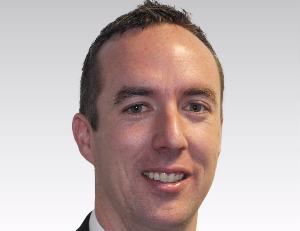Dealer groups should strengthen: AIA
Dealer groups’ position in the New Zealand market should strengthen, rather than weaken, when the new advice regime takes effect, AIA’s chief partnership officer Sam Tremethick says.
Monday, May 4th 2020, 9:45PM  5 Comments
5 Comments

He spoke to Newpark in a recorded video interview.
In it, he said that dealer groups were fundamental to the adviser world.
In Australia, they played a key role in education and helping advisers keep on top of their compliance requirements, he said.
There have been concerns that dealer groups that rely on overrides for income may suffer as insurers move – as in Partners Life’s case – to pay these direct to the adviser rather than a group.
AIA has introduced a new AIA Living commission structure last year without any production or volume-related bonuses. Asteron Life also removed its production bonus.
But Tremethick said groups’ position should strengthen with changing regulation.
“Having worked as an adviser my skillset is not necessarily compliance,” he said.
Advisers, while able to run compliant businesses, were skilled at going out and meeting clients.
They might not want to take the responsibility of meeting their new compliance requirements, he said, and might prefer to have a partner to do it for them.
He said dealer groups also played an important role in helping communicate messages from insurers to advisers.
“The strength of quality dealer groups should grow in the short to medium-term.”
He said while there had been recent discussion of adviser remuneration models, and much of that would be up to the regulator to decide, the industry should acknowledge that no one owned a client.
“What clients value is relationships,” he said. That was always with the adviser.
But he said advisers should expect there would be more of a requirement in future to demonstrate they were providing an ongoing service, to justify the continuing remuneration they received.
| « INVITE: Partners Life mini-conference | Mixed reviews from advisers on FMA regulation » |
Special Offers
Comments from our readers
Having owned an advisory firm offshore that was a registered FSP (NZ is known as a FAP) increased our bottom line expenses exponentially. Outsourcing things like compliance, competency, client management systems, and taking time to run a business costs money. If small advisory firms believe that they can continue to create revenue, meet their regulatory obligations, monitor, report, and manage their business, this is impossible -- something has to give.
Independence is retained within dealer groups - some have different models to others.
Whether you chose to try this alone - or allow someone else to be your licensed provider - there is some form of "answering to someone" "having to realign the way you work" the outsource providers cost money - whether that means to a dealer group or service provider to help you tick the boxes.
Dealer groups have the capabilities of scale and their primary goal is to support financial advisers because if they hold liability - you can be assured they do things right.
If your service provider does not hold liability for you - then a cookie-cutter method of tools and templates are used and if you haven't followed the lines or the used the templates correctly - you are the one with the risk.
Before jumping on the extra commission boat for running your FAP - consider the cost versus the reward, determine if your business model is then associated with one source of revenue (not a sound business model) and you have given your independence away. If you want a choice of supplier and "do it alone" - then you have taken on all the risk - the extra cost - and the "carrot" that made you make those decisions is not there. Beholden to one supplier for income - then an "agent" for that company is a more realistic picture.
Sign In to add your comment
| Printable version | Email to a friend |


